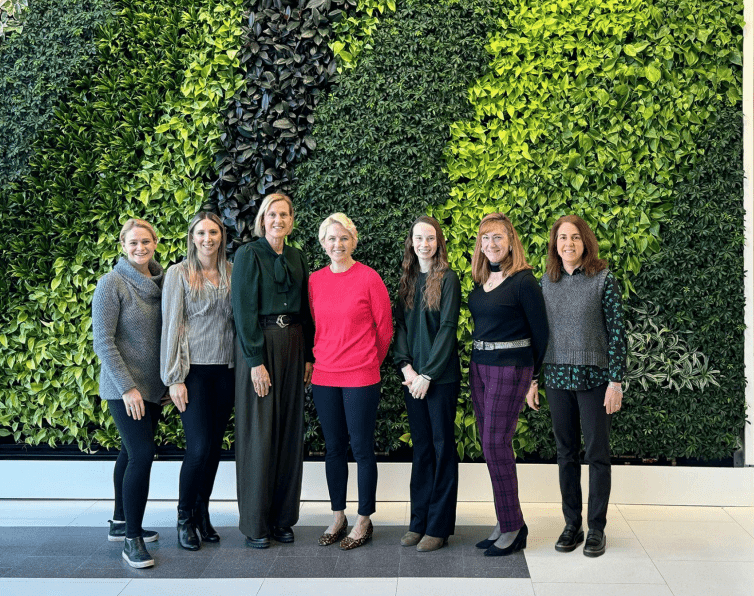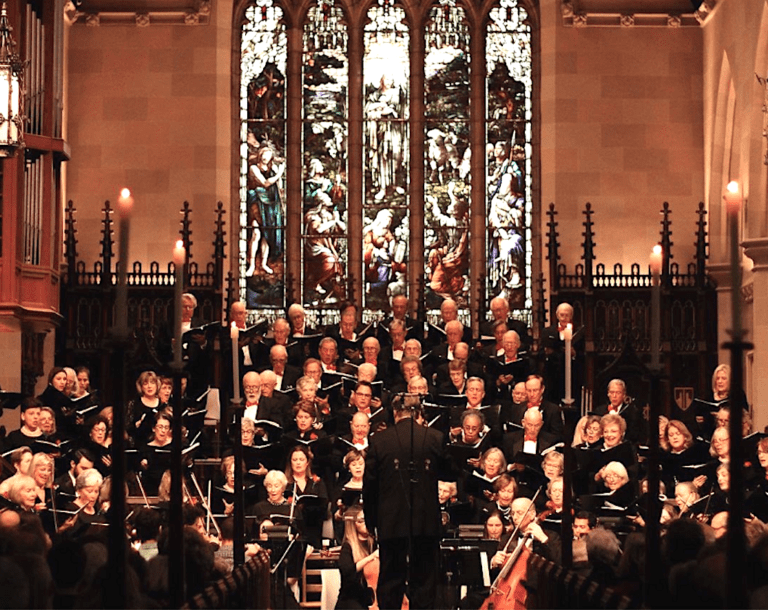By The Rev. Marek Zabriskie
The bywords of Advent, this brief, four-week season leading up to Christmas, are watching, waking, and waiting, preparing and expecting. When we boil these activities down we get to the nub of what Advent is about. Advent calls us to pay attention.
To pay attention means to focus your consciousness on another person or another thing. It requires you to set aside all the distractions, preoccupations, and things that vie for your attention. It takes energy and work to pay attention to one thing, and it is not easy to do.
All of the biblical messages and hymns that we sing during Advent remind us to focus our attention, because Jesus Christ is coming. In Matthew’s Gospel we read:
In those days John the Baptist appeared in the wilderness of Judea, proclaiming, “Repent, for the kingdom of heaven has come near.” This is the one of whom the prophet Isaiah spoke when he said, “The voice of one crying out in the wilderness:
‘Prepare the way of the Lord, make his paths straight.’” (Matt. 3:1-3)
John the Baptist urges us to pay attention. But his words bounce around our crowded minds. After all, this is busiest season of the year. We are making plans to travel or to host family. We tidy and decorate our home. We shop, wrap, and ship gifts. We prepare special foods. We have exams to take, Christmas cards to send, church services, parties and holiday events to attend.
And when we’re not doing all of this, we’re checking in with friends and family on Facebook, Instagram, Tik-Tok, sending texts, and reading email. It’s no wonder that we struggle to pay attention. Our brain and soul have no time to muse, wonder, rest, remember and reflect.
I once heard of a man who scheduled to take a retreat at a monastery. He arrived late. The monk, who met him, listened as his guest breathlessly recited all that he was doing which caused him to be late. The monk asked, “Would you like some tea.” The visitor said, “Yes.”
When the tea was ready, the monk poured it into the cup until it overflowed and spilled onto the saucer and across table. “Stop, what are you doing?” cried the visitor. “Your life is like this tea cup,” said the monk. “You are overflowing. There’s no room for God in your life. Why don’t you come back when there is room in your cup.”
Advent invites us to slow down, to peel away the veneer, and to focus on what really matters. The Bible tells us to pay attention, because when we truly pay attention and live in the present moment it transforms our spirit and each encounter in life.
Spiritual disciplines can help. They include things like meditation, prayer, study, fasting, worship, giving, silence, simplicity, solitude, submission, service, confession, guidance and celebration. To learn more, read Richard Foster’s book The Celebration of Discipline. These disciplines transform us from within and replace old destructive habits with new spiritual tools.
I recently took a tennis lesson. The tennis pro corrected two things about my forehand. Immediately, I began to hit the ball better. He didn’t give me fifteen pointers. Instead, he pointed out two things that if I mastered would correct many smaller faults. He was right.
We can do something similar for our spiritual life. We don’t need fifteen pointers. We only need to correct the one major thing to develop a greater sense of the presence of God.
In his Letter to the Philippians St. Paul wrote, “…whatever is true, whatever is honorable, whatever is just, whatever is pure, whatever is lovely, whatever is gracious, if there is anything worthy of praise, think about these things” (Phil. 4:8). Pay attention. So, how do quiet our hummingbird mind that whirls with distraction and focus on what truly matters?
Perhaps you attend church regularly or sporadically. You sing the hymns with gusto and listen to the lessons and sermon carefully. You give financially to support the church’s mission and volunteer your time, but if you remain in bondage to fear and anxieties, somethings is missing.
You may be surprised to hear me say this, but what we need to work on is not what happens in church, but what happens we do outside worship. It’s often easier to sense God in church, but when we leave we quickly lose our focus and get distracted by countless messages, errands, chores, tasks, and tests. We have spouses, children, grandkids, friends, neighbors, bosses and employees to please, news to digest, places to go, and commitments to keep.
Jesus says, “You will know the truth and the truth will set you free” (John 8:32). One of the ways to focus on God is to study. God hones our attention when we study. The most important book to study is the Bible. The psalmist writes, “Your Word is a lamp to my feet and a light to my path” (Ps. 119:105)
A.W. Tozier writes, “The Word of God well understood and religiously obeyed is the shortest route to spiritual perfection. And we must not select just a few favorite passages to the exclusion of others. Nothing less than the whole Bible can make a whole Christian.” I have put together a reading plan that can help you read through the Bible in a year. You can find it on www.thecenterforbiblicalstudies.org or in my book The Bible Challenge at the Dogwood Bookstore at Christ Church.
But you can also read one of the spiritual classics – books like St. Augustine’s Confessions, Thomas à Kempis’ The Imitation of Christ, Teresa of Avila’s Interior Castle, Dietrich Bonhoeffer’s The Cost of Discipleship, or C.S. Lewis’ Mere Christianity. These books bridge the ancient words of Scripture and the biblical world with something closer to our daily lives.
At Christ Church, we started the Spiritual Classics Book Club to help folks glean wisdom from these books. We recently read The Practice of the Presence of God by Brother Lawrence. It’s short, simple best book that that can help you find God in your daily life.
It is a composite of conversations with Nicholas Herman, who was born in France in the sixteenth century. He participated in the Thirty Years’ War, was seriously wounded. After eight years of war, his village 2,600 inhabitants had only 400 survivors. Like many people who have suffered, he asked himself important questions and sought to find God.
The war left him mentally and physically scarred. So, he joined a monastery in Paris and was given a new name. He became Brother Lawrence. Each monk was given a job. He wanted to work in the chapel and be close to God, dusting, sweeping, and polishing holy things.
Instead, he was assigned to work in the kitchen, peeling potatoes and preparing meals for the monks. Nothing seemed more mundane. God was in the chapel, not in the kitchen. But over time, Brother Lawrence made a great discovery, which you and I can also make.
While working in the kitchen, he committed himself to conversing constantly with God. He soon learned that he could converse with God as he peeled potatoes, stoked the oven, cooked food, and prepared meals for his fellow monks.
Every moment could be a sacred moment and each activity could be a holy act, if he practiced the presence of God. God could be found everywhere. Jesus said, “Wherever two or three gather in my name, I am in the midst of them” (Matt. 18:20).
Brother Lawrence discovered that we carry God wherever we go. Each activity and every place can offer a window to the Holy One. He wrote, “…our sanctification does not depend as much on changing our activities as it does on doing them for God rather than for ourselves.”
As Christmas approaches, focus on what truly matters. Converse quietly and constantly with God. It will transform each moment into a sacred moment as you radiate God’s love.




